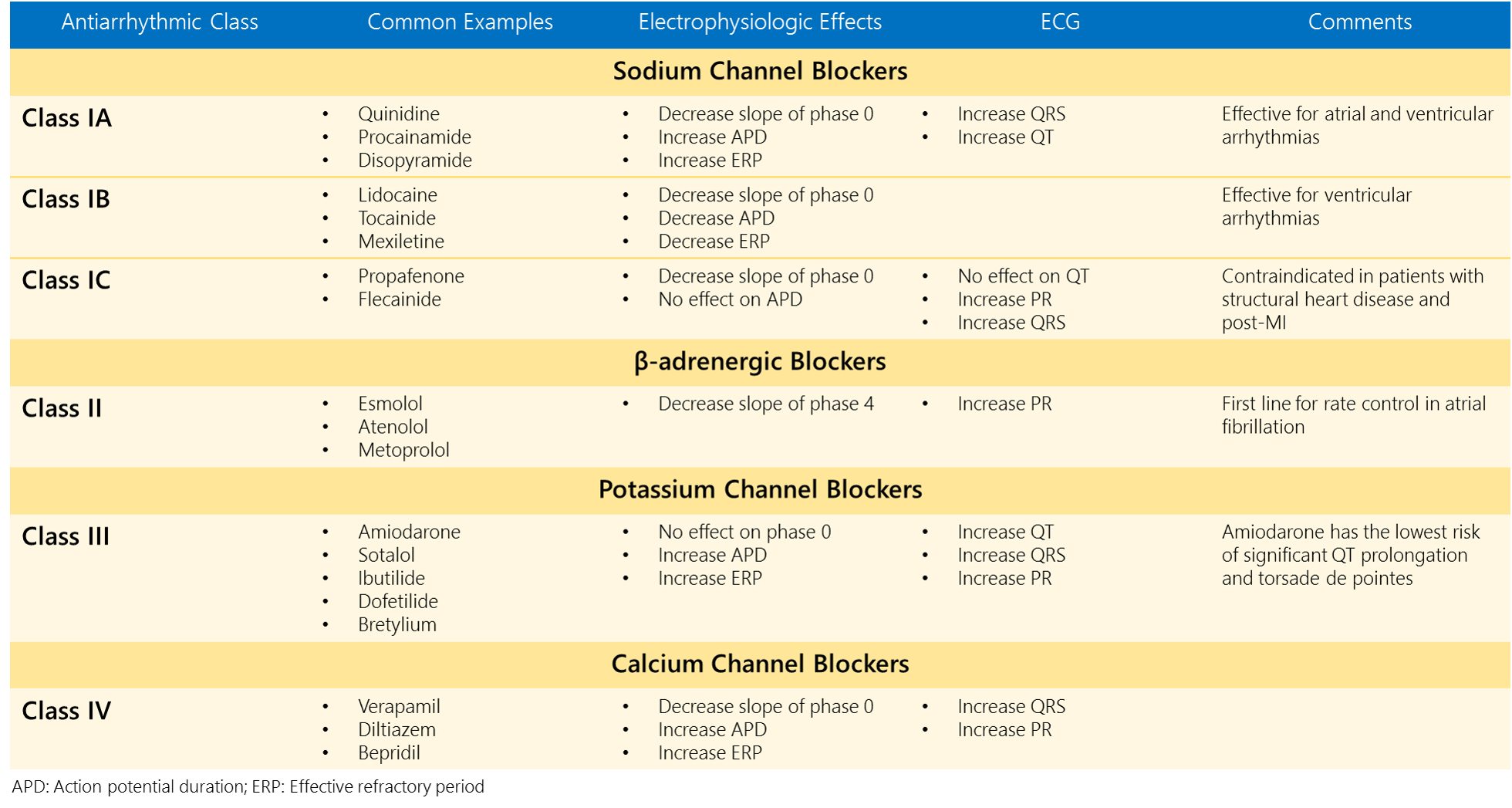WBR0401
| Author | [[PageAuthor::Serge Korjian, M.D. (Reviewed by Serge Korjian)]] |
|---|---|
| Exam Type | ExamType::USMLE Step 1 |
| Main Category | MainCategory::Pharmacology |
| Sub Category | SubCategory::Cardiology, SubCategory::Vascular |
| Prompt | [[Prompt::The mechanism of action of a novel experimental drug is under investigation. The drug is intended to treat patients with atrial and ventricular arrhythmias who cannot tolerate other therapies. After initial rat testing, the core lab determines that the active molecule acts on the transmembrane proteins that regulate the resting membrane potential of cardiomyocytes. ECG monitoring demonstrates significant, dose-dependent increase in the QT interval. Which of the following drugs is likely to be related to the experimental drug being evaluated?]] |
| Answer A | AnswerA::Sotalol |
| Answer A Explanation | AnswerAExp::Sotalol is a potasium channel blocker |
| Answer B | AnswerB::Metoprolol |
| Answer B Explanation | AnswerBExp::Metoprolol is a beta-blocker (class II) anti-arrhythmic. |
| Answer C | AnswerC::Lidocaine |
| Answer C Explanation | AnswerCExp::Lidocaine is a sodium channel blocker, which is a class IA anti-arrhythmic. |
| Answer D | AnswerD::Verapamil |
| Answer D Explanation | AnswerDExp::Verapamil is a calcium channel blocker, which is a class IV anti-arrhythmic. |
| Answer E | AnswerE::Mexiletine |
| Answer E Explanation | AnswerEExp::Mexiletine is a sodium channel blocker, which belongs to the class IB anti-arrhythmic drugs. |
| Right Answer | RightAnswer::A |
| Explanation | [[Explanation:: Educational Objective: Sotalol is a potasium channel blocker (class III) anti-arrhythmic. |
| Approved | Approved::Yes |
| Keyword | |
| Linked Question | Linked:: |
| Order in Linked Questions | LinkedOrder:: |